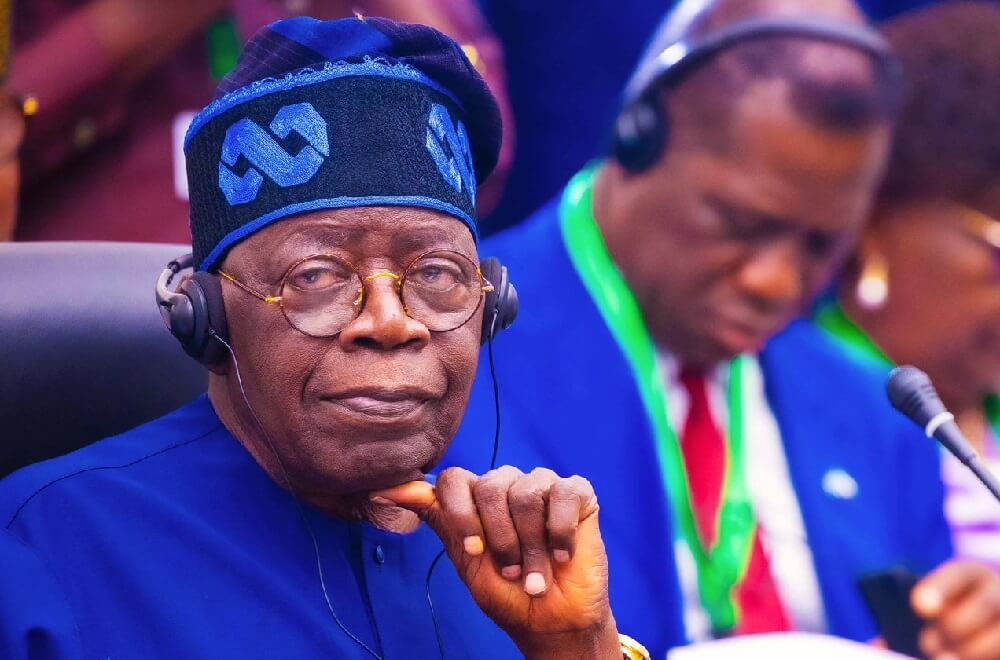Poverty: NHRC Asks Tinubu To Seek Constitutional Amendment To Make Education Free
…. As Commission Engages Stakeholders
The National Human Rights Commission (NHRC) has asked President Bola Tinubu to seek amendment of the 1999 constitution to enforce the economic, social and cultural rights of the country’s citizens.
Advertisement
The Commission believes constitutional amendment in that regard will help address high rate of poverty among other challenges facing the nation.
THE WHISTLER reports that the economic, social and cultural rights of Nigerians are enshrined in Chapter 2 of the 1999 constitution which among other things states that Government shall strive to eradicate illiteracy; and to this end, government shall as and when practicable provide free, compulsory and universal primary, secondary and university education.
But the same constitution in Section 6 and 6(c) provides that such rights are not justiciable, that is, it cannot be heard or determined by a court if one’s right to free education is violated.
The section reads , “(6) The judicial powers vested in accordance with the foregoing provisions of this section – shall not except as otherwise provided by this Constitution, extend to any issue or question as to whether any act of omission by any authority or person or as to whether any law or any judicial decision is in conformity with the Fundamental Objectives and Directive Principles of State Policy set out in Chapter II of this Constitution;”
Advertisement
Over the years, many Civil Society Organizations, both local and international, including several lawyers, have suggested the enforcement of Chapter 2 of the 1999 constitution.
The Commission, which is the chief human right enforcement agency in the country, disclosed the recommendation in its NHRC Alternative Report on behalf of the nation to the Universal Periodic Review (UPR) of the United Nations Human Rights Council.
The report, made available to THE WHISTLER, is expected to be submitted for review at the 45th Session of the Human Rights Council UPR 4th Cycle in April/May 2024.
The NHRC gathered Civil Society Organizations and government agencies in Abuja for a validation meeting that affords stakeholders the opportunity to make input into the document prior to submission of Nigeria’s final report to the UN human rights Council.
It observed that policy inconsistencies, inadequate funding, unreliable data, high population growth rate, high poverty rate and poor infrastructural facilities including erratic power supply are part of the germane issues still making economic and social rights unattainable.
Advertisement
It, however recommended that President Bola Tinubu should consider amending the 1999 constitution to make economic, social and economic rights listed in the Constitution enforceable.
The NHRC said “Government should: amend the Constitution to make economic, social and cultural rights enforceable in Nigeria;provide sufficient budgetary allocation for social and economic services;judiciously utilize resources allocated to social and economic services;embark on continuous capacity development of staff of relevant government Ministries, Department and Agencies (MDAs) responsible for providing social and economic services in rights-based approach to development;reduce cost of governance and increase its revenue base for the provision of key social and economic services.”
It further suggested the government should ensure a policy reform to increase capital expenditure to at least 60% of budgetary expenditure and recurrent to 40% in the shortest possible time while making corrupt practices less attractive to public office holders through downward review of perks and benefits of top public office holders.
Other recommendations made include making anti-corruption agencies stronger and more independent, strengthening its monitoring, evaluation and performance management system for efficient public service delivery.”
The report examined the situation of human rights in Nigeria between 2019 and 2023, the performance level of the immediate past government of President Muhammadu Buhari and former governors regarding administration of criminal justice, rule of law; torture, extra-judicial and arbitrary killing, insecurity and violent extremism; rights of women and children; enjoyment of economic, social and cultural rights poverty reduction, inequalities and protection of vulnerable communities.
The Commission acknowledged the past government’s Conditional Cash Transfer program which pays a bimonthly stipend of N10,000 each to 2 million vulnerable household.
Advertisement
The report explained that the past Government had done its best by launching several key poverty alleviation programmes such as Survival Fund, National Youth Investment Fund, National Special Public Workers Programme.
But it urged government to consider its recommendations for the good of the country.
Earlier in his welcome address, the Executive Secretary of the NHRC, Tony Ojukwu SAN, said its report will provide the federal government the opportunity to reassess it’s constitutional obligations on a regular basis thereby guaranteeing the welfare and security of the citizenry.
“This will task government and relevant stakeholders to address root causes of inequalities, conflicts and other structural gaps in the country,” he added.



